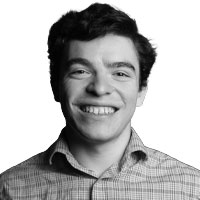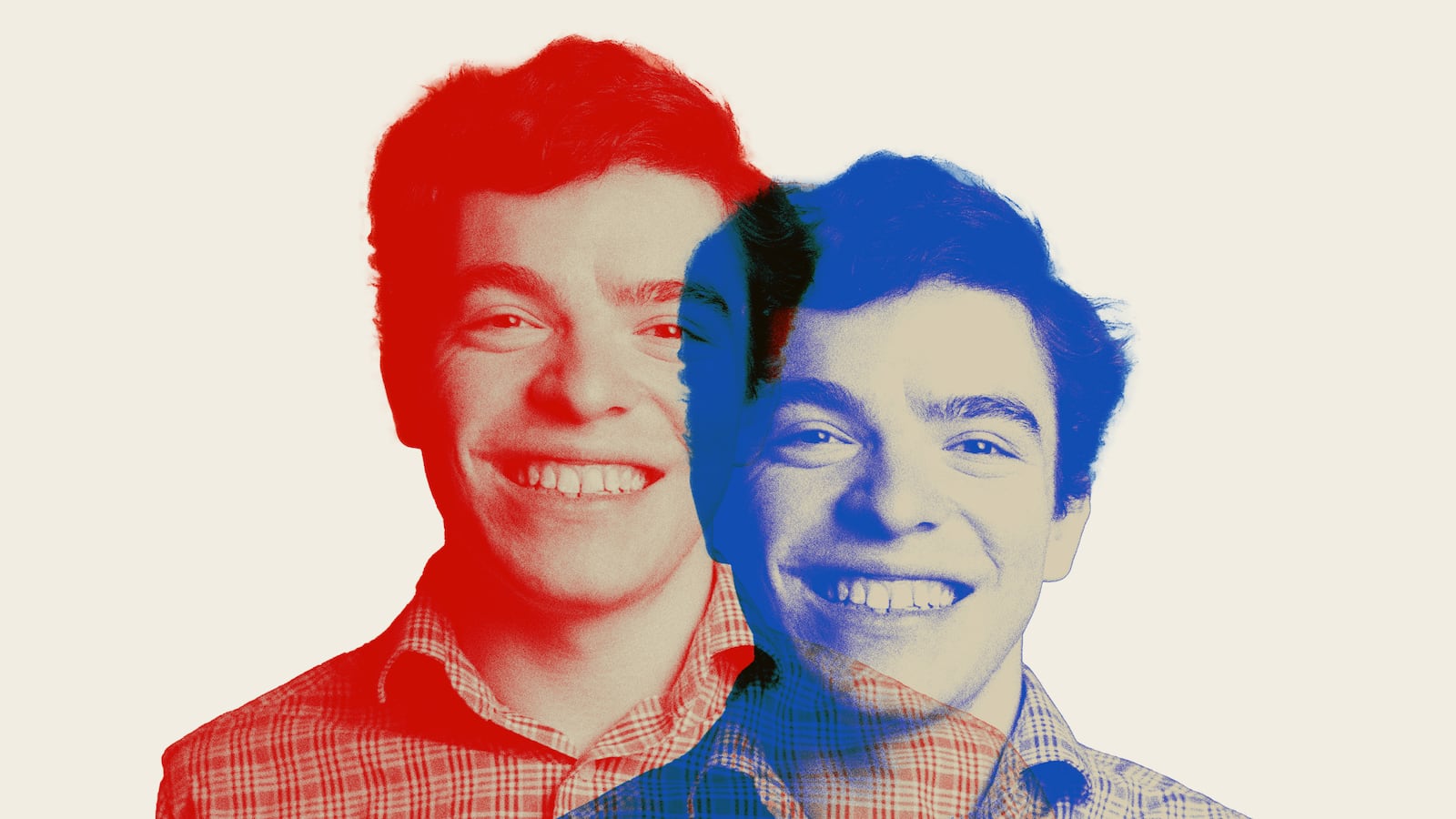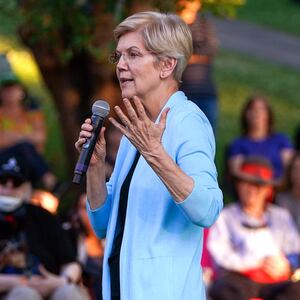This is an excerpt from the book, The Moment: Changemakers on Why and How They Joined the Fight for Social Justice, edited by Steve Fiffer and to be published by NewSouth Books this November. For The Moment, Fiffer interviewed more than 35 activists of all ages, backgrounds, and professions. Among those featured are Bryan Stevenson, founder of the Equal Justice Initiative; Don Katz, founder of Audible.com; and award-winning writer Edwidge Danticat. Excerpts featuring Jackson, MS Mayor Chokwe Antar Lumumba and Professor Ebony Lumumba and Christian Picciolini appeared here earlier this year.
When I was in fourth grade, a lot of my friends were complaining about the food at our elementary school. I thought, This isn't fair. Most people were not able to bring lunch from home like I was. I thought we should have a healthy option. So I created a petition and solicited support from other individuals. My argument even included some helpful tips, such as: “The designers would have to consider how high off the ground it should be so the little kids could reach. Also they would have to consider how hot the soup should be so people won’t burn themselves.”
The petition was successful, unanimously approved by school officials, and we got a salad bar. Because it was a success, I started to think I’d actually be able to make a difference, that I’d be able to impact change again.
When I was about nine, I started listening to the portable radio in my bedroom. I listened to NPR quite a bit. My mom Nancy Shapiro would also put NPR on when we were in the car. So I started paying attention to the news. One day I heard Elizabeth Warren. I thought what she was saying was interesting and that maybe I could get involved in her campaign for the Senate. This was 2012.
I wrote a pretty long letter to the campaign telling them why I thought I would be qualified to volunteer. I figured maybe they wouldn't think that I would be because I was only nine. So I explained some of the things I’d done—like getting the salad bar at our school.
Chaperoned by his grandmother, Shapiro canvassed door to door. Bitten by the campaign bug, he also volunteered in the successful campaigns of Ed Markey for Senate and Maura Healey for Massachusetts Attorney General. At the age of 11, he actually managed the campaign of Joyce Gerber, a candidate for the Cambridge School Committee. Gerber sang his praises, noting that, “He understands the numbers... and knows how to use the data.” In 2014, Senator Warren invited Shapiro to be her guest at President Obama’s State of the Union Address.
I worked on the campaigns of different candidates I liked until 2016, but then sort of adjusted a bit. I became much more involved and really passionate about youth civic engagement. Issues are important to me, but the number one thing I care about is strengthening our democracy. I believe in it; it works really well when our voices are heard. But I really feel that our system is at risk.
So after working on those campaigns, I felt that working with young people was an area where I had the ability to make the largest impact. At that point, I had been out in the world working with a lot of adults and felt I could translate that into determining how young people could be supported to participate in civic opportunities—whether it was in campaigns or just learning about how our government works.
I saw there was this problem in schools. Students weren’t learning civics. One of my friends who was very knowledgeable didn't even know that there were three branches of government; I had to teach her. And this is in Cambridge! I was amazed. Adults were not necessarily aware of this situation, because when they were in school, many of them did learn civics.
At this time, there was an effort going on to push civics education in Massachusetts. I asked myself how I could participate. One of the biggest problems we have in this country is polarization. So I created a partnership between Massachusetts High School Democrats and Massachusetts High School Republicans with the idea that we could work together to push for the bill requiring civics education in the schools.
We met with many of the important Massachusetts legislators. We got a lot of publicity. And we made a difference. The bill passed.
I started thinking about other avenues for strengthening our democracy through increasing youth involvement. My philosophy of life is that everybody should at least have the opportunity to participate civically, to have the opportunity to learn about how our government works so that then they can vote. Looking around, I saw that a lot of the upcoming 2018 congressional political campaigns were not catering to young people. I talked with others in the High School Democrats of America and asked, “Can we develop resources? Could high school students have the same opportunities I had?” If you can work as an intern on a campaign, you’ll learn so much.
We ended up promoting internship opportunities to Democratic organizations and politicians. We created a sort of guidebook that showed students how to connect with local leaders. We said, “This is what a successful program looks like. This is why it's important. These are sample internship applications.” We were able to say, “If you're a young, more campaigns will have a place for you as an intern.” We provided resources for about forty key races.
Around this time the Parkland shootings happened in Florida. This was tragic. But something very inspiring came out of the tragedy. Millions of people—especially young people—wanted to get involved for the first time. A lot of them weren’t sure how to do that. I knew other people like myself who had tried in the past to involve young people. After Parkland, we were asking, “How do we do that now?”
There were lots of events going on, but those of us in Cambridge didn’t even know what was going on in Boston. We also didn't know what students were involved in. The only thing that everybody knew about was the National March in Washington.
So here was another challenge: A lot of people want to get involved, but they didn’t know how. That was really disappointing to me because I feel strongly if a young person wants to do something, they really should be able to. It made me really sad that there were people in Cambridge who wanted to make change, but they couldn't even figure out what was going on in Boston. Even if it wasn't that they were interested in gun control—maybe it was climate change or other issues—they couldn’t easily figure out what was going on where.
The reason for this is because we young people are not using Facebook, which is a common organizing tool of other generations. We use Snapchat, Instagram, TikTok, but everything disappears on those platforms. They're not purpose-built for organizing. So I thought: What if there were a way for people to access the hub for events, community connection, educational resources about activism and issues?
That was the idea, so we studied other platforms to see whether we could use something that already existed. We found there might be one app for registering to vote, another app for education about activism, another app for group chat. It was all spread out. There was no single location to learn about how to get involved and where to get involved when you want to.
I wasn’t an entrepreneur or an app developer; my interests are politics and civic engagement. And baroque music! After thinking about it for a while, I put together an advisory board of people who are well known and very knowledgeable in different and related fields such as digital security and fundraising, people who are long-time activists, people in app development. This was possible because of the credentials I had from my political work and the connections I had made, and through a lot of emailing and networking. Almost everyone we contacted said, “Yes.” Beginning in 2019, after we had a board with great credentials and credibility, we started raising money for this because we needed to hire a developer.
I love technology, too. But for me, this was simply the means to achieving a stronger democracy where more people would have the opportunity to get involved. I didn't know a lot of about startups at that point. I had to learn a lot.
We decided to be a tech, non-profit and register as a 501c3 charity. App development alone took about a year—basically from the summer of 2019 to the summer of 2020. It was very complicated.
During that time, the pandemic started. That changed everything. We’ve focused on many different areas that I never expected. People should visit the TurnUp website to see all that we do. In short, we have internship programs where we train people for advocacy and engagement projects. We offer tools for organization and education. And we do voter registration and turnout. In the 2021 Georgia runoff election, we were by far the largest youth-led, youth-voter turnout operation.
Our outreach includes speaking engagements. My message is, you can make a difference. Learn what is going on, think about what you could do about it, talk about the issues. Also, be prepared. There are going to be a lot of challenges and obstacles. It's really about perseverance. Don’t just show up, but persevere.
Recognize that young people—specifically those closely connected to an issue—have a very important and relevant perspective that others might not have. So if you see an issue, appreciate your power and show up.
There was nothing out there like us when we started. And now there’s so much more to TurnUp. We have a lot of priorities coming up. We have created a fund to invest in ideas from young people who are focused on increasing civic engagement and voter turnout and activism. We want to support those ideas. We actually have a tool now that allows a person to figure out where their vote will be more valuable—whether it's in their home state or where they go to school. That was developed by young people. We’re really trying to think about all the possible ways we can increase youth engagement to strengthen democracy. We're trying to hire people to organize voter registration in high schools, where efforts have lacked in comparison to college,
For myself, this is my career. It’s interesting. I mean, I've been doing this political stuff now for ten years. I'm going to continue with it in terms of youth civic engagement. I'm open to changing that focus if I’m shown there’s another way that I can make a bigger impact on our democracy, but I don't think that's going to be the case. So I expect to focus on this for the foreseeable future.

Excerpted from the forthcoming book The Moment: Changemakers on Why and How They Joined the Fight for Social Justice, edited by Steve Fiffer and published by NewSouth Books.
Zev Shapiro, 20, grew up in Cambridge, MA. Currently a junior at Harvard, he is the founder and executive director of TurnUp, a non-profit organization and mobile app focused on increasing youth voter turnout and activism.
Steve Fiffer is the editor of The Moment: Changemakers on Why and How They Joined the Fight for Social Justice, and co-author with Adar Cohen of the nonfiction book Jimmie Lee and James. Recently he collaborated with the late C.T. Vivian on the memoir It’s in the Action: Memories of a Nonviolent Warrior.







